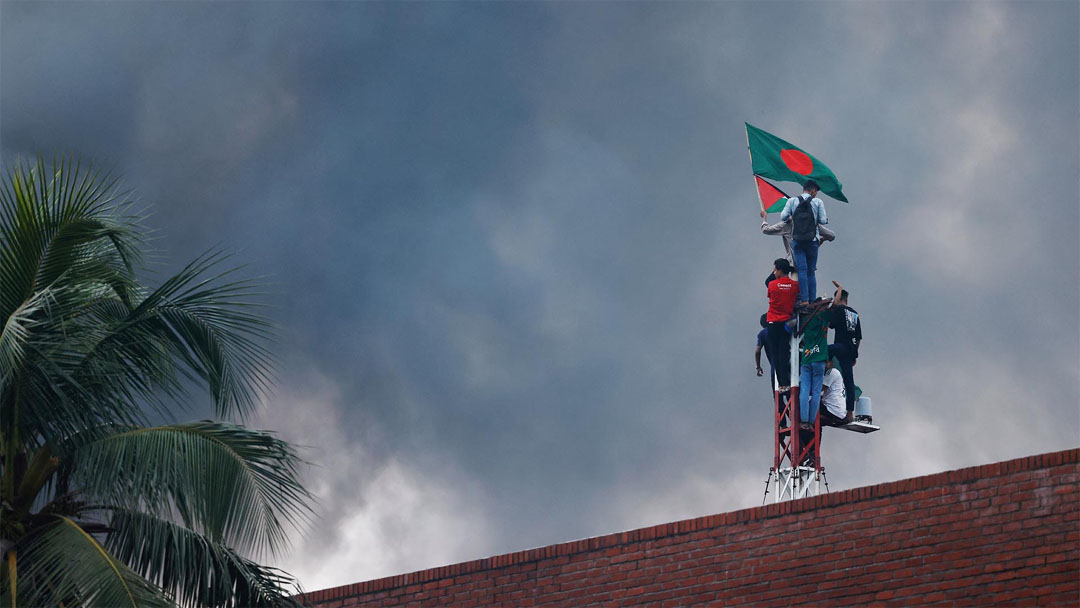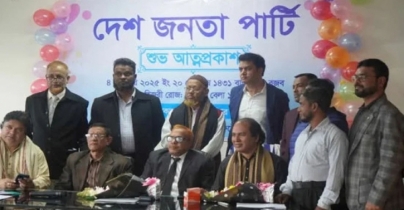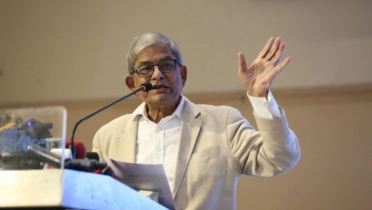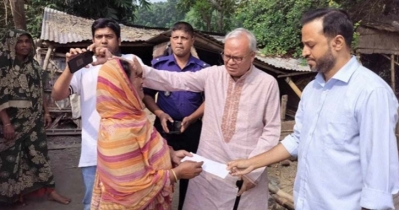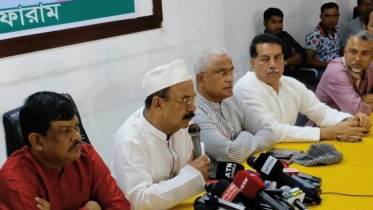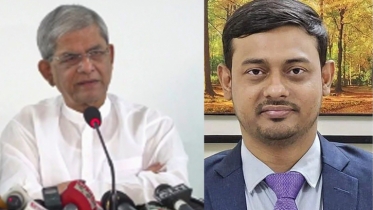A student-led mass movement toppled Sheikh Hasina’s regime on August 5. Hasina was seen as India’s closest ally. Reuters file photo showing protesters flying Bangladesh’s flag
The last 15 years were considered the best period for Bangladesh-India bilateral ties under the Awami League government when Dhaka's submissive foreign policy was often criticised for being ‘knee-jerk’.
But the honeymoon period is over. Sheikh Hasina’s ouster and flight to Delhi on August 5, Indian Defence Minister Rajnath Singh telling his troops to be ready over the Bangladesh issue and the flash floods in Feni have strained ties.
Some political analysts say Bangladesh’s ties with India were not on equal footing. They say the fall of Hasina could help boost people to people connectivity and stabilise bilateral relationships.
M Humayun Kabir, Bangladesh’s former ambassador to the US, says India has yet to come to terms with the pivotal change in Dhaka. “It sees the regime change as a huge strategic loss. India will have some demands and so will Bangladesh. We can recalibrate the ties through dialogue,” he said.
Hasina’s government had a frosty relationship with the US, particularly over issues of democracy and human rights, Kabir said.
Interim government’s head Dr Yunus is scheduled to meet US President Joe Biden on the sidelines of UNGA. Kabir said Bangladesh will be able to thaw its ties with the West.
“The US can help Bangladesh with technical or financial assistance. Our relations with the US are evolving,” he said.
Dr Yunus is also scheduled to meet Pakistan’s prime minister. This meeting will help improve the existing ties, Kabir said, adding that there’s no scope to sidestep Pakistan’s apology over its 1971 genocide.

